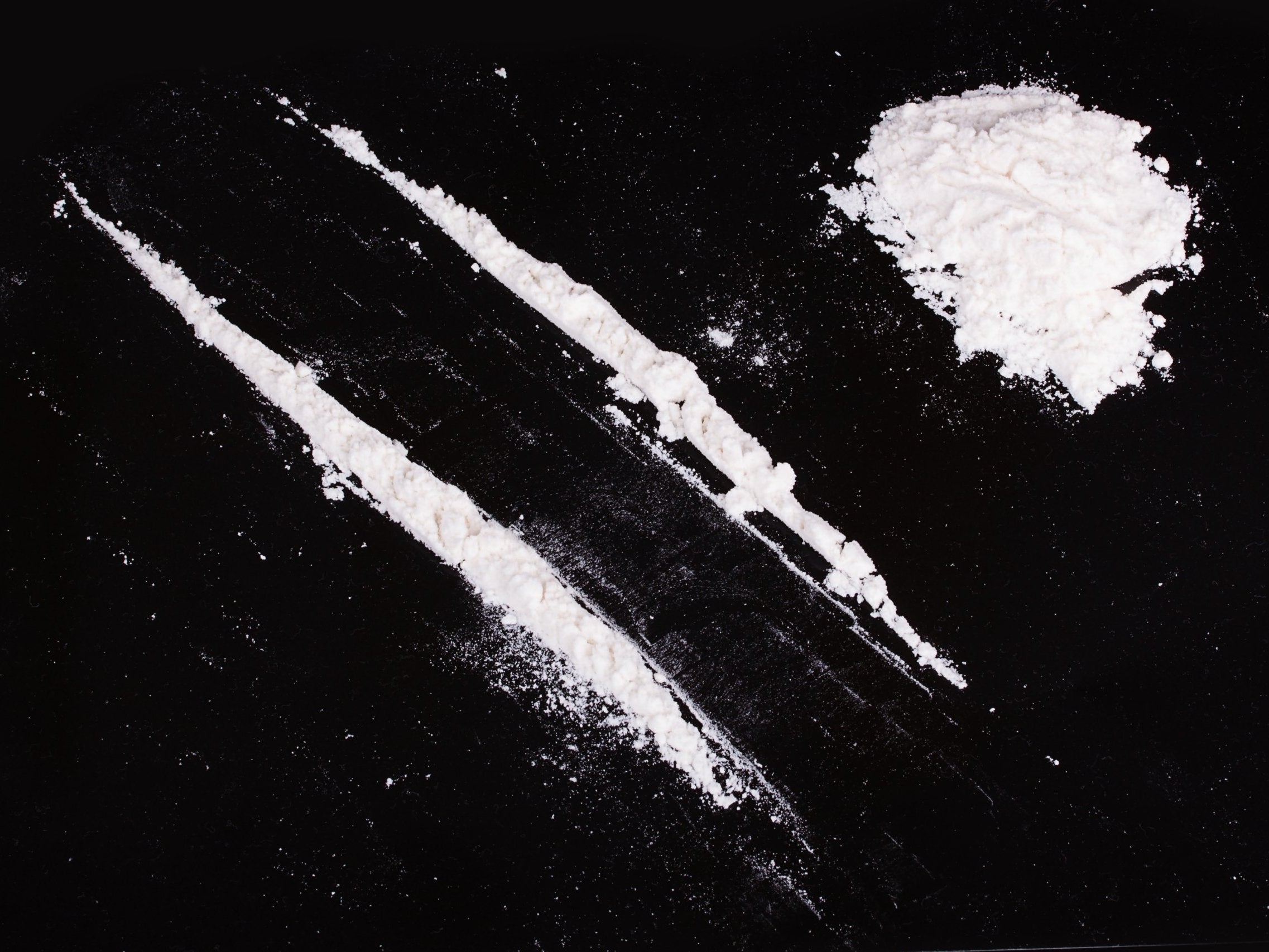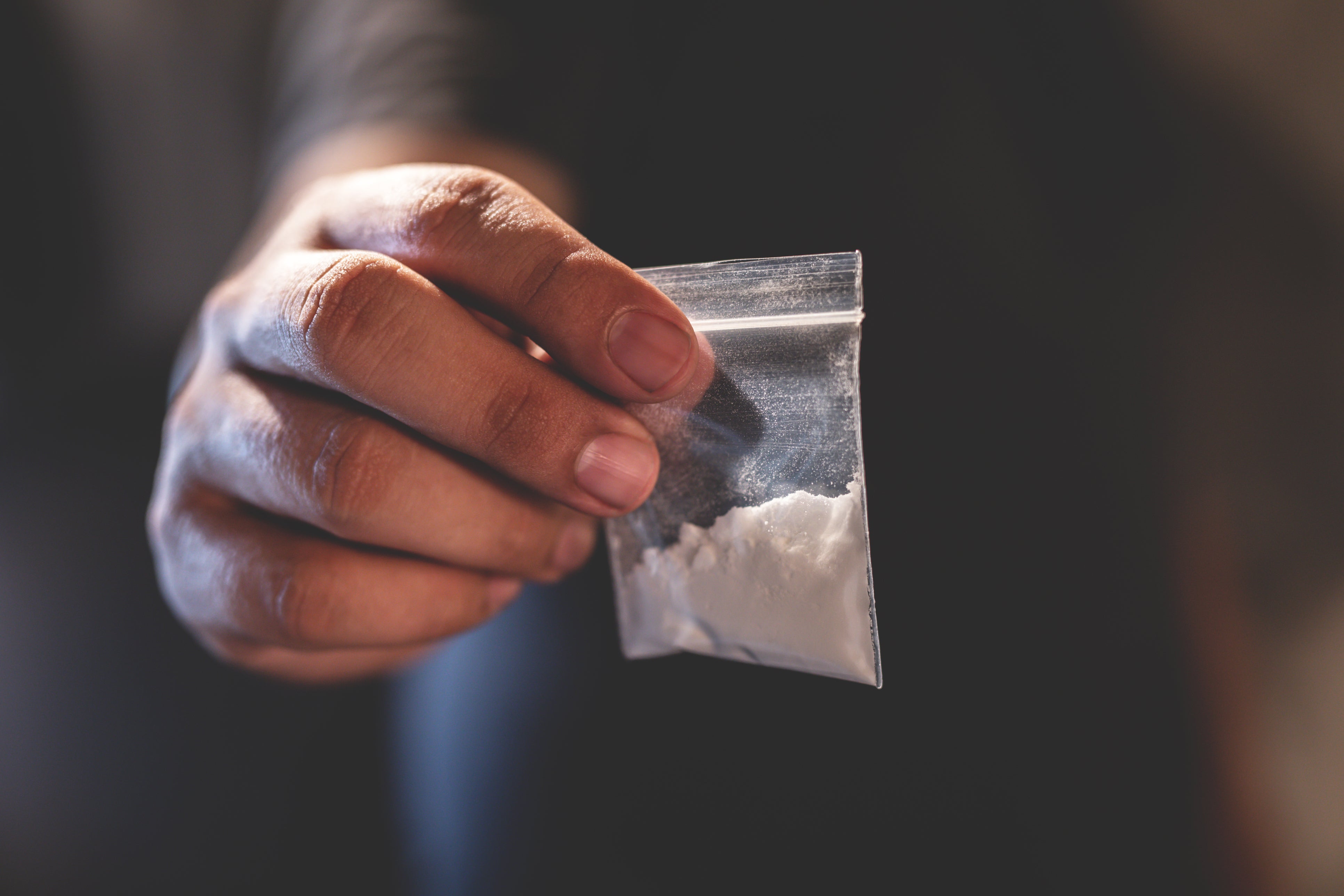We live in a world where cocaine is both everywhere and nowhere. Cocaine trafficking is surging globally, according to the UN, with cultivation up 35 per cent from 2020 to 2021. According to an Organisation for Economic Co-operation and Development (OECD) report, the UK has the second-highest rate of cocaine users in the world. It’s culturally visible from the high art of Scorsese to knockabout nonsense like Cocaine Bear. It’s the subject of a million laddy memes about “the sesh” (a cheeky metaphor for taking drugs) and hinted at in lyrics on Charli XCX’s all-conquering Brat album (“Shall we do a little key? Shall we have a little line?”). In pubs, clubs and football matches, it’s simply not a novelty to see anyone in the UK using cocaine any more.
Politicians and the media gave up having an opinion on it a long time ago, in case someone in their midst was discovered to be a user and charges of hypocrisy clouded the issue. It means cocaine sits in a unique, morally ambiguous, judgment-free vacuum. Which, it turns out, is fine, except if someone wants to quit. Given its sharp rise in usage, cocaine is dangerously absent from any national discourse.
I used to think that this eerie culture of silence came from the simple fact of its illegal, class-A status. But as more of us struggle with addiction, or know people who do, this silence starts to feel quite cruel and contributory. Because there’s a deeper reason people don’t discuss their problems with cocaine: a sense of shame. To fill this void, a brave new wave of voices is starting to speak out. In the absence of any meaningful national discussion, these individuals have taken it upon themselves to honestly tell their own stories – as a way to help others.
Before the pandemic, Ryan Phillips was a major presence in London nightlife. He was the head of music for a group that owned nine venues and a handful of festivals. “On weekends, I would be hosting DJs, partying as part of work,” he tells me. “I was always the last one up on a night out, the one who couldn’t say no to a line. But I was successful, so on paper everything was fine.” Yet when Covid hit, he found himself “Getting on it at the same rate. I was made redundant and I just spiralled – I went on an absolutely mad one and blew it all.” He means financially. Ryan reached rock bottom after being discovered by his sister, having been up for three days straight. She had to climb in the window. “Look, I’ve got this problem,” he told her.
With the same raw honesty as that admission to his sister, Ryan now tells a much wider audience – around three million views a week – about his addiction journey as Ryan in Recovery on TikTok. His videos are simple, one-take testimonials that share his triggers, struggles and crucially his advice for others. He relapsed in the middle of 2024. He shared that with his followers, too. “I just want to be as brutally honest as possible,” he says. “Even when it can feel uncomfortable, I know it’s resonating because these are things that aren’t being spoken about enough.”
His videos all begin: “My name is Ryan, and I’m in recovery”. That word “recovery” is significant in the new wave of voices online that are breaking the silence on drug use. Narcotics Anonymous (NA), the best-known treatment programme in the world, strictly mandates that you refer to yourself as an “addict”. This element of the 12-step programme presents you as this helpless person, a victim of a disease, Ryan believes. “But I can’t live in that shame. For a majority of people, especially young people, it doesn’t work for them any more. I think it’s fine to feel guilty, but calling yourself an addict is like labelling yourself as a bad person. You can say, ‘Yeah, I’ve done s*** stuff.’ But it doesn’t mean I’m a s*** person.”
Someone else critical of NA’s traditional approach – which requires recovering users to turn their life over to “God” or a power “greater than themselves”, and follow a series of steps such as contacting anyone they’ve ever wronged – is Will Armstrong, who posts under the name Will – Teetotal Mentor. His profile states “No Labels, No Shame and No Higher Power”, as an immediate counterpoint to NA’s god-fearing maxim. “If you go down to the pub once a week and get on the bag a little bit [take cocaine], you would never consider yourself an addict. So if I use that word, I’m eliminating the people I need to relate to the most.”

For Armstrong, shattering the idea that cocaine users are alone is paramount. “We get hundreds of messages from people wanting help every day, and they each think they’re alone in this. Because drug use can lead to so much shame, people want to try and solve it by themselves. In fact, the one thing that helps you break out of it is other people.”
Alongside three other coaches, Armstrong runs an online programme called The Teetotal Trail that helps remove alcohol and cocaine from people’s lives. It’s somewhere between coaching and rehabilitation, but crucially with a community aspect too. “If you surround yourself with people who have the same goal, it holds you accountable and keeps you motivated and inspired”. Ryan in Recovery has also launched a community called The Deep End, which emphasises support and wellness. “It’s not so much about removing a substance, more about getting yourself to a point where you maybe don’t need to use that substance as a crutch any more,” he explains.
Armstrong is open about his past addiction to alcohol and drugs. He admits in an introductory video, pinned to his Insta grid, that he himself “hit a breaking point” seven years ago. But though he’s open about his time using, he feels the weight of the past is given too much priority in the traditional treatment mindset. “When people want to break a habit, there’s an obsession with finding out why they do it. The reality is: even if you find out why, it doesn’t stop you. Bringing those emotions up is like reopening a wound you’re not letting heal.” His solution? “Let’s forget about the wounds for now, and let’s actually focus on what we can do today to make a change. We don’t facilitate any victim mentality. If you just want sympathy, then you can go to those other programmes. We’re not necessarily here to make you feel nice. We’re here to get you out of this, and that’s the difference. To do that, we’ve got to put some work in.”
Hannah Viney is another fresh voice combating the debilitating silence around cocaine use with radical honesty and incisive content. Her podcast Class A People, is a trove of discussions with ordinary people who have overcome often extremely severe addictions. “People listen to it who don’t have addiction issues,” she tells me. “It’s a self-discovery journey that resonates – if you’re in a toxic relationship, want to leave your job or have issues with family, it’s all relatable.”
For her, attention deficit hyperactivity disorder (ADHD) was a key reason for developing what she calls an “insatiable appetite” for cocaine: “For a neurodivergent person, cocaine can sometimes make your brain finally feel like you’re a normal person. You just presume that everyone’s got the same brain as you and they don’t.” By the end of her time using, she was “So bored of the life I was living. I was sleep deprived and in psychosis. It stripped me of all my character.” She began posting to Instagram and over the first eight months of videos, “you can literally watch my personality coming back”.

Her perspectives on the current absence of any dialogues about cocaine – one she’s hoping to fill with a new set of pamphlets entitled “A Class A Guide” – are gleaned from thousands of chats with her followers. A common issue she identifies is one between male friends. “Coke gets you talking. When it’s introduced to a male friendship group that might struggle to open up to each other, it’s profound – but then it quickly becomes a state where they won’t talk about their anxieties and worries unless they’re on the sesh. Cocaine is conniving like that.” If one guy feels they need to take a step back from the drug, they’re likely to be met with “Oh don’t be such a pussy”. This trap also exists for those who might seem like the life and soul of the party, but only when they’re using. “They’re probably the ones suffering the most, due to that fear of not knowing if they’ll still be the same buzzy, popular person afterwards.”
It’s a fragile mercy that Viney and others are able to use social media to host these urgently needed discussions on modern drug use. Fragile because platforms like Instagram are mysteriously censorious when it comes to sex and drugs. “I’ve been shadow banned on Instagram after using certain words, I’ve lost my account several times too,” claims Armstrong. “Whole videos have been removed because they think I’m selling drugs. Every time I’ve tried to contact Instagram, there’s just no help or resolution.” It’s ironic, given how much drug-positive meme content floods the platform daily, either evangelising “the sesh” or “the afters” – both bywords for drug-taking. “They can be really validating if you take cocaine, if you’re scrolling on your phone on a comedown,” thinks Viney. “You’ll see something relatable and funny, scroll through the comments and think: Oh good, it’s not just me”.
In a world with very few discussions about the downsides of cocaine, being open about addiction and recovery isn’t a walk in the park. For his troubles, Phillips still gets messages saying: “Why are you talking about this? It doesn’t need to be spoken about,” while Viney will get comments telling her “Urgh, it’s Friday – get a gram in and shut up.” Given what a lonely world it is for those in recovery, it’s a blessing that neither has.
If you or someone you know is suffering from drug addiction, you can seek confidential help and support 24/7 from Frank, by calling 0300 123 6600, texting 82111, sending an email or visiting their website here.
If you’re experiencing issues to do with addiction and cocaine use, consider visiting Turning Point for support.
The wait is finally over. Kim Kardashian is opening a Skims store in London
Eva Longoria shares tips on how to have the best Cannes
Are you procrastinating? These expert tips could help you stop
How many steps to take each day to slash your risk of cancer
Why we still don’t know what causes ADHD
Aaron Taylor-Johnson signs deal with iconic James Bond brand







